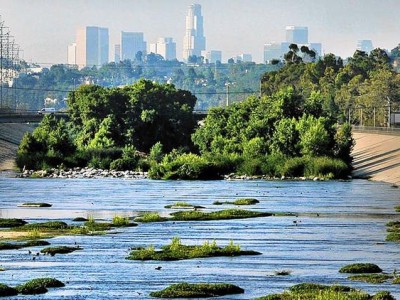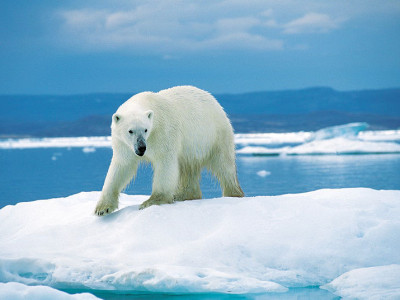journalism
New York Climate Weak
The Drain is a weekly roundup of environmental and climate news from Legal Planet.
Now is the time for courage. Now is not the time to pull punches or pull speakers. We need more speech — not enforced silence. That’s why I’m not a big fan of shutting down campus speakers, even those who might spread climate obstruction. Like Vicki Hollub, the CEO of Occidental Petroleum, who was being …
Continue reading “New York Climate Weak”
CONTINUE READINGIs Brazil Ready for COP30? No One Is Ready for COP30
The Drain is a weekly roundup of climate and environmental news from Legal Planet.
It’s officially less than 6 months until COP30 — when tens of thousands of people will descend on the Brazilian city of Belém for the annual UN climate conference — and no one is ready. For one thing, Belém is an impoverished city of 2.5 million that can’t build enough hotels for the 50,000 expected delegates …
Continue reading “Is Brazil Ready for COP30? No One Is Ready for COP30”
CONTINUE READING100 Days of Fear & Loathing in Climate World
The Drain is a weekly roundup of climate and environmental news from Legal Planet.
Are you tired of the words “100 days”? “In his first 100 days the Trump administration has slashed federal agencies, canceled national reports, and yanked funding from universities,” Grist puts it. “One hundred days of anti-environmental mayhem,” says Dan Farber at Legal Planet. My UCLA colleague Ann Carlson is quoted by the New York Times …
Continue reading “100 Days of Fear & Loathing in Climate World”
CONTINUE READINGDay After Earth Day, the Climate Pope, and the 89%
The Drain is a new weekly roundup of climate and environmental news from Legal Planet.
Environmental journalists everywhere are breathing easier this morning. They made it through Earth Day — one of two insufferable seasons of cliche, inane PR pitches clogging their inboxes. (The other? The 2-week UN Climate Conference each fall.) Environmental advocates are breathing a little easier too, because the White House blinked first in the war of …
Continue reading “Day After Earth Day, the Climate Pope, and the 89%”
CONTINUE READINGIntroducing Your Legal Planet Weekly Roundup
The L.A. Times Boiling Point is ending its informative weekly news roundups. Here’s your weekly Legal Planet roundup, The Drain.
Good morning! The L.A. Times fantastic Boiling Point column is ending its weekly news roundups of environmental and climate stories. As columnist Sammy Roth noted in his message to readers, “reading and analyzing so many news stories every week takes up an enormous amount of time and energy.” No kidding! I produce something similar for …
Continue reading “Introducing Your Legal Planet Weekly Roundup”
CONTINUE READINGA Crisis in Climate Communications
Deadly windstorms, wildfires, and hurricanes constitute something more horrific than just “climate change.”
What’s best for communicating urgency: phrases like “global warming” and “climate change” or “climate crisis” and “climate emergency”? What do audiences take away from these semantic choices? Does it matter what words we use? What about when the entire nation is watching a series of wildfires engulf Los Angeles, fueled by unusually dry vegetation during …
Continue reading “A Crisis in Climate Communications”
CONTINUE READINGShould Environmental News Coverage Be In The Science Section?
A whiles back I wrote about how the New York Times’ environmental coverage had been in decline. The public editor at the Times has a new article stating that environmental coverage has recently increased substantially. I think that is a great thing. But I want to focus on another element of the public editor’s article. …
Continue reading “Should Environmental News Coverage Be In The Science Section?”
CONTINUE READINGThe Los Angeles River and GOP Ideology: Everybody Wins!
A few years ago, I heard Bruce Babbitt here at UCLA describe the U.S. Army Corps of Engineers as “just a terrible agency.” Then he repeated it, just to make sure that we all heard him. When a politician does something like that, you know that he’s reached the end of his rope. The Los …
Continue reading “The Los Angeles River and GOP Ideology: Everybody Wins!”
CONTINUE READINGA Follow-up on the NYT’s Environmental Coverage
Environmental journalism in decline at the NYT
Last March, the New York Times killed its Green blog and disassembled its environment desk, distributing the staff into other units. Jayni noted the possible concern that this change might result in diminished resources for environmental coverage at the Times; she also noted the positive spin that some Times people put on the change, …
Continue reading “A Follow-up on the NYT’s Environmental Coverage”
CONTINUE READINGAre Polar Bears Really Endangered?
“Glib contrarianism” in environmental journalism
The news web site Slate is known for its counterintuitive articles – so much so, that the term “slatepitch” has been coined. But sometimes trying to write a counterintuitive article leads you to write something, well, just wrong. Today, Slate ran an article about “Five Species You Thought Were Endangered That Really Aren’t (Including the …
Continue reading “Are Polar Bears Really Endangered?”
CONTINUE READING







